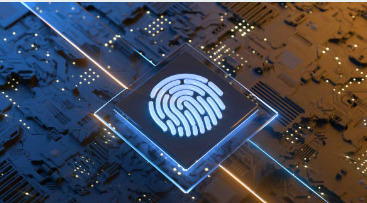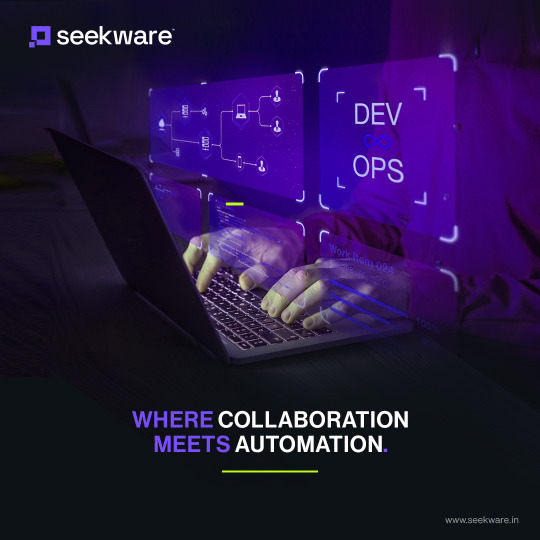#Blockchain Development Companies
Explore tagged Tumblr posts
Text
Top Blockchain Expert in the Gaming Industry in the UAE

In recent years, the United Arab Emirates has become an important player in the game development market worldwide. This is possible due to continuous innovation in game development, which integrates the latest technology, such as blockchain, game development tools. This ensures high game performance and the security of user data while playing the game. Nowadays, most industries and clients are taking services from UAE-based top game development companies and customized game development services. The market data also shows that the blockchain game development market in the United Arab Emirates has generated the market value of USD 14.8 Billion in 2024 and is expected to reach USD 1172.8 Billion by 2033 at a CAGR of 62.59%. This article will give you an overview of top blockchain expert companies for game development in UAE, as well as some information will also be shared below related to blockchain technology.
Top Blockchain Expert in UAE for Game Development
Various expert companies in the UAE were providing the service related to game development, but only a few top blockchain development company like Abhiwan Technology have expertise in integrating blockchain technology for game development. Some of the top company names were discussed below, which will give you a piece of information about them.
Abhiwan Technology: It is one of the best blockchain service providers in the UAE. It has years of experience in blockchain technology, along with having a team of blockchain technology experts and expertise in providing blockchain integration services to various businesses. Various services were provided by this company such as blockchain development, nft game development, game development, mobile game development, metaverse game development, 3d game development, 2d game development, realestate metaverse, web development, and many more services The company's portfolio is proof that it has delivered high-quality results to global clients, and many companies from all over the world have collaborated with it.
Dappsfirm: It is a well-known top blockchain experts in the UAE. This company has years of experience providing services such as custom-centric blockchain game design and development services, Play-To-Earn (P2E) games, and many more services related to the blockchain. One of the best features of this company it has expertise in integrating blockchain applications also.
PLAYA3ULL GAMES: This is a well-known game development company in the UAE, this company provides services such as pc game development by integrating blockchain, provides.game assets through decentralized platforms and many more services. This company emerges as a well-known blockchain expert in the UAE due to its high quality services.
Stepico: It is one of the best blockchain technology experts in the UAE, this company provides services such as blockchain and nft integration while developing the games, customized blockchain-based games to various industries, collaboration with many industries, and many more services. Portfolio of this company is the proof that it has delivered high quality services to global clients.
Real-Life Applications of Blockchain Technology
Due to continuous innovation and advancement in blockchain technology, most industries are using the blockchain technology, and they have started taking blockchain services from the UAE-based blockchain development company to get better results. Some points were mentioned below, which will give you a piece of information regarding them.
In the healthcare sector, blockchain technology is used to keep the records of the patient digitally, as well as it allows the authorized person only to see the patient records from any location.
In banking and finance sectors, blockchain technology is used to ensure secure transfer of payment, as well as transactions are recorded so that they can be viewed by authorized persons only. Most of the finance sectors were taking these services from UAE-based top blockchain experts to ensure high security and safety of user data.
In the supply chain sector, smart contracts are used to ensure various technical and non-technical operations get executed automatically, which results in saving the operation execution time as well as saving the money by removing the third party involvement.
What is Blockchain Game Development?
In simple language, it means that it is a process of developing the games by integrating the blockchain technology. Integration of blockchain technology in game development ensures the high performance of the game as well as high security of the user data while playing the game. Most of the companies from all over the world were taking blockchain game development services from the UAE-based best blockchain expert companies as these companies have years of experience in developing the games, as well as various features were provided by blockchain technology, such as the use of cryptocurrency, players can have access to NFT, transparency in game and many more features. Various types of blockchain-based games are available, such as Play to Earn Games, NFT Games, Metaverse Games, and many more games. These types of games are also in high demand among the gaming audience, due to which many game development companies are focusing on developing high-quality games with additional features to attract the global gaming audience.
Is Blockchain the Future of Gaming?
Yes, blockchain-based games are the future of the gaming industries, because the integration of blockchain technology while developing the games allows various benefits such as high security while doing transactions, high security of user data, operations get executed in games automatically, which ensure fast loading speed in the game, and many more features. The best benefit of playing blockchain-based games is that players get the opportunity to earn real money by playing play-to-earn games, along with NFT-based games, which allows the players to have full control over the digital assets, so that they can be purchased, sold, or traded easily while playing the NFT-based games. Due to all such features and benefits, blockchain-based games were in high demand among the gaming audience as well as market reports also show that the demand of blockchain-based games will continue to rise at a high rate.
Conclusion
Nowadays, the demand for blockchain-based games is increasing all over the world at a high rate, the main reason behind this continuous innovation and advancement in the development of blockchain games by integrating the latest technologies, as well as the latest features to attract the global gaming audience from all over the world. Top blockchain expert company like Abhiwan Technology is one of the blockchain game development companies in the UAE, this company has successfully developed various high-quality blockchain games for various clients. The market report also shows that the blockchain games demand will rise in the future, as well as the blockchain game development industry is expected to reach USD 1172.8 Billion by 2033, which will result in bringing various opportunities such as the creation of jobs opportunities, bringing foreign investments into UAE, attracting global gaming audiences from all over the world and many more benefits.
#blockchain expert#blockchain development companies#blockchain development company#top blockchain experts#blockchain technology expert
0 notes
Text
How Digital Authentication Methods Are Revolutionizing the Banking Industry in 2024
The banking industry has been undergoing a profound transformation in recent years, with digital authentication methods taking center stage in ensuring secure and seamless transactions. As we move further into 2024, these authentication methods are not only enhancing security but also reshaping customer experiences and operational efficiency in banking.

The Shift Toward Digital Authentication
In the past, traditional banking relied heavily on passwords and PINs for security, but these methods have proven vulnerable to cyber threats and data breaches. As a result, digital authentication methods have emerged as a crucial solution to protect sensitive financial data. With advancements in technology, financial institutions are adopting more sophisticated systems such as biometrics, two-factor authentication (2FA), and artificial intelligence (AI)-driven solutions to fortify their security measures.
Enhancing Security with Biometric Authentication
Biometric authentication, including fingerprint recognition, facial recognition, and iris scanning, is one of the most significant developments in banking security. These methods provide a higher level of protection compared to traditional passwords because they are unique to each individual. In 2024, biometric authentication is becoming more widespread, allowing customers to easily access their accounts and perform transactions securely using their biological traits. This technology helps reduce the risks associated with password theft and fraud.
Multi-Factor Authentication (MFA) for Extra Protection
Multi-factor authentication (MFA) is another game-changing method being implemented by banks to ensure that only authorized individuals can access sensitive information. MFA requires customers to provide two or more verification factors—something they know (like a password), something they have (such as a smartphone), or something they are (like a fingerprint or face). This added layer of security is a powerful deterrent against cyberattacks, providing banks with an effective tool to safeguard their customers’ financial data.
AI and Machine Learning for Fraud Detection
Artificial intelligence (AI) and machine learning (ML) are increasingly being integrated into digital authentication systems. These technologies help banks detect unusual patterns and behaviors in real-time, identifying potential fraud before it occurs. For example, AI can analyze login attempts, transaction history, and geolocation data to determine if an action is legitimate or potentially fraudulent. As AI continues to advance, these systems will become even more accurate, allowing banks to provide faster and more efficient fraud prevention.
Streamlining the Customer Experience
Digital authentication methods are not only improving security but also enhancing the overall customer experience. With passwordless authentication gaining popularity, customers can access their accounts with a simple biometric scan or a one-time password sent to their mobile device. This frictionless experience helps customers save time and effort while ensuring their accounts remain secure. In 2024, customers expect to engage with their banks through digital platforms that are easy to use and offer seamless security features.
The Future of Digital Authentication in Banking
As digital authentication methods continue to evolve, the future of banking will undoubtedly be shaped by increasingly sophisticated security technologies. The adoption of blockchain technology, for example, could play a significant role in securing transactions and protecting customer data. Additionally, banks are likely to continue exploring the potential of AI and biometrics to create even more personalized and secure customer experiences.
In conclusion, Digital Authentication methods for Customers are revolutionizing the banking industry by enhancing security, streamlining customer interactions, and leveraging cutting-edge technologies to prevent fraud. As these methods become more integrated into everyday banking, customers can expect a more secure, efficient, and user-friendly banking experience in 2024 and beyond.
0 notes
Text
Blockchain Development Company | Stellanova Globaltech Pvt Ltd
Stellanova Globaltech Pvt Ltd is a trusted blockchain development company offering innovative solutions to streamline business processes, enhance security, and drive digital transformation. Let’s build the future together!

#blockchain development company#blockchain development services#blockchain development companies#blockchain development company in india
0 notes
Text

How Can Blockchain Revolutionize the Future of Healthcare and Pharmaceuticals?
Blockchain technology is changing many domains, and health care is no different. In this sector, the data security issues, inefficiencies, and skyrocketing costs bring a decentralized, transparent platform with blockchain. This blog shall focus on how blockchain technology is changing healthcare-expecially in pharmaceuticals-and companies like Justtry Technologies, which are helping unlock the potential of blockchain in this sector.
Why Blockchain in Health Care?
Blockchain makes use of distributed data and is, therefore, decentralized in that it has no central entity controlling the data. This can be invaluable in the healthcare industry, with sensitive patient information and, indeed, clinical trial data that must be kept secure. Blockchain does this by keeping healthcare data tamper-proof, thus instilling trust and security into the whole system.
Some major benefits of blockchain in health care are as follows:
More Security: Blockchain guards against cyberattacks and unauthorized access to the patient's information; therefore, health data remains private and secure.
Transparency in Data Sharing: Blockchain provides a hassle-free and reliable sharing of a patient's records with hospitals, doctors, and insurance companies.
It Prevents Fraud: Blockchain does not allow alterations in clinical trial data, and hence the integrity of research is kept intact.
Operational Cost Efficiency: It spares the healthcare providers from operational costs mainly because it saves healthcare providers from the hassle of going through intermediaries and automates administrative tasks.
At Justtry Technologies, we help healthcare organizations integrate blockchain solutions that provide data security, transparency, and operational efficiency.
How Blockchain is Applied in Healthcare?
Blockchain is being used in various critical areas of healthcare:
Patient Records: Blockchain allows patients who are choosing to share their medical histories securely to choose who can access the documents. This increases data privacy because the patients' personal information is kept anonymous. It also facilitates easy transfer of information among different healthcare providers.
One of the biggest hurdles in pharma is drug authenticity. Blockchain allows the validation of the entire journey of the medicine - its creation to its delivery - to restrict entrance of counterfeits in the market.
Applications in Clinical Trials: Blockchain makes sure the clinical trial data is held immutable with active transparency. Trust in the process is built because no one can manipulate or alter the data as part of clinical trials.
Blockchain in Medicine: Solving the Key Pharma Challenges
The pharmaceutical company is presently being faced by quite a few challenges, including fake drugs, strict regulatory compliance, and a long drug development process. Blockchain offers solutions to such problems, catering to safe data management and real-time insights.
A number of key applications related to blockchain within the pharmaceuticals include:
Drug Traceability: Using blockchain, a pharmaceutical company can trace their drugs all along the supply chain, meaning that with blockchain assurance, they know that their drugs are not tampered with, meaning that they, indeed, meet regulatory standards.
Personalized Medication: Blockchain sees to it that data is conveyed between parties, hence allowing for more accurate and bespoke treatments considering patient information.
Clinical Trial Data Integrity: Blockchain means that clinical trial data is secure and transparent. This helps in ensuring regulation compliance as well as safeguarding research integrity.
Justtry Technologies is integrating blockchain technology to help pharmaceutical companies improve security levels, efficiency, and speed in the entire development of drugs.
Blockchain Health Data: Security and Compliance
Healthcare organizations still face threats regarding security over health data; blockchain offers the best solution by giving decentralized, transparent, and immutable data storage. This not only enhances security but also assists in compliance to regulations on data privacy.
Blockchain allows healthcare organizations to ensure:
Secure Data Storage: Patient records are stored in an immutable format that cannot be altered to ensure data integrity.
Regulatory Compliance: Blockchain provides an easy, auditable trail of how the data accessed is utilized, thus significantly aiding such regulations as HIPAA in terms of compliance.
Trust and Transparency: Patients, healthcare providers, and regulators will trust that the data being put in blockchain is accurate and not tampered.
Conclusion: Future of Healthcare with Blockchain
Blockchain is unlocking the future of healthcare, some of the very tough challenges that the industry faces. From safeguarding patient data to improving the speed of the pharmaceutical supply chain, blockchain stands as the game changer. At its core lies the exciting innovative measure of stand-alone leader Justtry Technologies in revolutionizing the use of blockchain solutions tackling innovation and improvement in health care and pharmaceutical.
#blockchain in health sector#blockchain development services#blockchain development#blockchaintechnology#blockchain technologies#blockchain in medicine#blockchain in healthcare#blockchain development companies#blockchain development company in US
0 notes
Text
2024 Tokenization Boom: A New Era for Real-World Assets

In 2024, the landscape of real-world asset (RWA) tokenization is experiencing a transformative shift, marking a significant milestone in the financial industry. Tokenization converts physical assets like real estate, commodities, and art into digital tokens on a blockchain, enhancing liquidity, accessibility, transparency, and security. This revolutionary technology makes high-value assets more accessible to a broader range of investors. As we explore the current state and future prospects of tokenization, it is clear that this technology is set to reshape the global financial ecosystem significantly.
Tokenization is predicted to be a multi-trillion-dollar opportunity by 2030, with market estimates suggesting it could reach up to $16 trillion. The United States is leading this revolution, followed by countries like Singapore, the United Kingdom, Switzerland, India, and Luxembourg.
The total value locked in tokenized assets has surged to $10.53 billion, with major financial institutions launching tokenized investment products. This signals a major inflection point for the industry, underscoring the significant role tokenization will play in the future of finance.
The benefits of tokenization are extensive. It allows for fractional ownership, increasing liquidity and enabling investors to buy and sell portions of an asset. This democratizes investment opportunities and bridges the gap between traditional and digital financial markets. Tokenization also reduces transaction costs by eliminating intermediaries and automating processes through smart contracts.
As regulatory frameworks evolve and technology advances, tokenization is set to revolutionize the financial industry. Intelisync provides cutting-edge RWA tokenization services to help you navigate and capitalize on this financial Learn more....
#metaverse development company#blockchain development companies#web3 development#blockchain development services#metaverse game development#24/7 Market Access#Access to Real-World Yields#Asset Classes in Tokenization#Benefiting Blockchains#CeFi and DeFi tokenization#CeFi-Based Tokenization Protocols#Commodities#Common Combinations#Credit & Loans#Current Trajectory#DeFi protocols#DeFi-Based Tokenization Protocols#Diverse Asset Classes#Dominance of the U.S.#Emerging Trends#Enhanced Liquidity#Ethereum’s Prominence#Fractional Ownership#Leading Geographies#Leading Geographies in Tokenization#Less Popular Asset Classes#Performance of DeFi Protocols#Popular Asset Classes#Private Credit#Real Estate
1 note
·
View note
Text
Top Blockchain Development Services Companies in Canada 2024 | AskGalore
Leading blockchain development companies in Canada offering ESG blockchain solutions in 2024. Hire expert blockchain developers for innovative projects with AskGalore's curated list.
#blockchain development company in Canada#esg blockchain#hire blockchain developers#blockchain developers#blockchain development companies
0 notes
Text
Top 10 Blockchain Development Companies in USA 2024
If you are searching for blockchain development companies then this blog post is just for you. Here is the list of top 10 blockchain development companies in 2024. Click on the link to read in detail:
#blockchain#blockchain development#blockchain development companies#blockchain services#blockchain app development#blockchain app development services
0 notes
Text
The Role of Blockchain Development Companies in Shaping the Future
In the dynamic landscape of technology, blockchain has emerged as a transformative force, offering unprecedented levels of security, transparency, and decentralization. At the forefront of this revolution are blockchain development companies, organizations dedicated to harnessing the power of distributed ledger technology to drive innovation across various industries. As blockchain continues to redefine the way we transact, collaborate, and store data, the role of these development companies becomes increasingly crucial in shaping the future of digital ecosystems.

The Rise of Blockchain Development Companies:
The advent of Bitcoin in 2009 marked the birth of blockchain technology, a decentralized ledger system that enables secure peer-to-peer transactions without the need for intermediaries. Since then, blockchain has evolved beyond cryptocurrencies, with applications ranging from supply chain management and healthcare to finance and governance. Recognizing the vast potential of blockchain development companies like Gratix technologies have emerged to explore, innovate, and implement solutions that leverage this groundbreaking technology.
Key Pillars of Blockchain Development Companies:
Blockchain development companies operate at the intersection of technology, business, and innovation, guided by a set of core principles and practices that drive their operations and initiatives.
Technical Expertise:
At the heart of blockchain development companies lies a team of highly skilled professionals with expertise in distributed systems, cryptography, consensus algorithms, and smart contract development. These experts possess a deep understanding of blockchain protocols such as Bitcoin, Ethereum, and Hyperledger, enabling them to design, build, and deploy scalable and secure blockchain solutions tailored to specific use cases and requirements.
Innovation and Research:
Innovation is the lifeblood of blockchain development companies like Gratix technologies , driving continuous research and development efforts to push the boundaries of what's possible with blockchain technology. These companies invest in exploring new consensus mechanisms, improving scalability and throughput, enhancing privacy and anonymity features, and exploring novel applications of blockchain across industries. Through innovation labs, hackathons, and collaborative partnerships, blockchain development companies foster a culture of experimentation and exploration, paving the way for groundbreaking advancements in the field.
Collaboration and Partnerships:
Blockchain development companies recognize the importance of collaboration and partnerships in driving ecosystem growth and adoption. They actively engage with industry stakeholders, including enterprises, startups, governments, academic institutions, and non-profit organizations, to co-create and deploy blockchain solutions that address real-world challenges and opportunities. By fostering an open and inclusive ecosystem, blockchain development companies catalyze innovation, knowledge sharing, and standards development, laying the groundwork for a more interconnected and interoperable blockchain landscape.
Regulatory Compliance and Governance:
Navigating the complex regulatory landscape is a critical aspect of blockchain development. Blockchain development companies work closely with regulatory bodies, legal experts, and industry associations to ensure compliance with relevant laws, regulations, and standards governing blockchain and cryptocurrency activities. They implement robust governance frameworks, security measures, and risk management practices to mitigate legal and operational risks associated with blockchain deployments. By fostering a culture of compliance and transparency, blockchain development companies build trust and credibility within the broader ecosystem.
Challenges and Opportunities:
Despite its transformative potential, blockchain technology faces several challenges, including scalability limitations, interoperability issues, regulatory uncertainty, and user adoption barriers. Blockchain development companies must navigate these challenges while seizing opportunities to drive mainstream adoption and unlock new use cases for blockchain across industries.
Scalability and Performance:
Scalability remains a pressing concern for blockchain development companies, particularly as the demand for high-throughput, low-latency blockchain solutions continues to rise. Companies are exploring various scalability solutions, including sharding, layer 2 protocols, and consensus algorithm enhancements, to improve transaction throughput and reduce latency without compromising security or decentralization.
Interoperability and Standardization:
Interoperability is essential for realizing the full potential of blockchain technology, enabling seamless data and asset transfer across different blockchain networks and platforms. Blockchain development companies actively contribute to interoperability standards and protocols, such as cross-chain communication protocols, interoperability bridges, and common data formats, to facilitate interoperability between disparate blockchain ecosystems.
Regulatory Compliance and Adoption:
Regulatory compliance remains a significant challenge for blockchain development companies, given the evolving regulatory landscape and the varying degrees of regulatory clarity across jurisdictions. Companies must navigate complex compliance requirements, KYC/AML regulations, tax implications, and data privacy laws while designing and deploying blockchain solutions. Moreover, driving user adoption and overcoming usability barriers are critical to mainstream blockchain adoption, requiring intuitive user interfaces, seamless onboarding experiences, and compelling use cases that deliver tangible value to end-users.
Conclusion:
Blockchain development companies like Gratix technologies are at the forefront of driving innovation, shaping regulatory frameworks, and unlocking the transformative potential of blockchain technology. With their technical expertise, innovative spirit, and collaborative ethos, these companies are poised to revolutionize industries, empower individuals, and foster a more inclusive and transparent digital economy. As blockchain continues to evolve and mature, the role of development companies will remain indispensable in driving the next wave of blockchain innovation and adoption.
1 note
·
View note
Text

Seekware offers cutting-edge blockchain app development services tailored to meet the unique needs of your business. Harness the power of blockchain technology to enhance security, transparency, and efficiency in your operations. Our expert team of developers will work closely with you to design and build robust blockchain applications that revolutionize your industry. From decentralized finance (DeFi) platforms to supply chain management solutions, Seekware delivers innovative and scalable blockchain solutions that drive growth and unlock new possibilities for your organization. Trust Seekware to bring your blockchain ideas to life and stay ahead in the digital revolution.
#blockchain app development company#blockchain software development company#top blockchain development companies#Blockchain AI Software Development Company#best blockchain development company#blockchain development agency#blockchain development companies#blockchain wallet development company
0 notes
Text
Top Blockchain Integration Company in the UAE

Nowadays, the United Arab Emirates is becoming a hub for blockchain technology. Most companies and industries from all over the world are seeking services related to blockchain technology in the UAE. The main reason behind this is the continuous innovation and development of the UAE-based top blockchain service provider companies as well as the UAE Government were also playing an important role in making the UAE hub for blockchain technology. The market data also shows that the market value of integrating blockchain services is USD 156 million in 2023 and it is also expected to reach USD 5.2 billion by 2030 this will result in offering various benefits that will help in the development of the UAE and the technological sector. This article will give you an overview of the top blockchain integration companies in the UAE as well as some information related to blockchain technology is discussed below.
Top Blockchain Integration Companies in UAE
There are a few top blockchain development companies in the UAE like Abhiwan Technology which has years of experience in blockchain technology and expertise in integrating the blockchain into various industries. Some of the information related to top companies is mentioned below it will give you a piece of information about them
1 Abhiwan Technology: It is one of the top blockchain development company
in the UAE. This company has years of experience in providing blockchain integration service in various industries as well as to global clients. This company also provides the services such as blockchain game development, nft game development, game development, mobile game development, 3d game development, 2d game development, metaverse game development, unreal game development, web development, and many more services. The portfolio of this company is proof that it has provided high-quality services to various clients.
2 Innoway Technologies is also a well-known blockchain development company in the UAE. These companies have years of experience providing services such as blockchain consultation in industries such as healthcare and supply chain management. One of the best features of this company is its expert team of tech developers who have years of experience in blockchain technology.
3 Juege Studio is a well-known blockchain development service provider in the UAE. It has delivered high-quality services to various clients and is famous for providing services such as blockchain integration service, blockchain game development, and many more. This company specializes in providing custom-based blockchain services to small-scale businesses which helps them to boost their performances.
Benefits of Blockchain Integration Services
Blockchain Technology integration in many industries has provided various benefits due to which most of the industries and clients were taking these services from UAE-based top blockchain development companies some of the major benefits are mentioned below.
Transparency: Integration of blockchain technologies in sectors like finance, healthcare, real estate, and many more sectors ensures every transaction is now recorded, and every document is stored digitally it can be accessed by authorized persons only.
Cost Saving: Integration of blockchain technology in industries like supply chain management, and logistics has reduced operation costs, operations are now getting automated as it reduces the dependencies on third parties. Most of the supply chain industries were taking services related to blockchain development to improve business performance.
Security: Integration of blockchain technology in sectors like banking, insurance, real-estate, finance, and many more sectors ensures the security of transactions, and security over data which ensures no third party can have access to data.
What is a real-life example of a blockchain?
Blockchain technology plays an important role in real life many industries are using blockchain integration to improve their performances some industries such as the banking sector has integrated blockchain technology to improve security while doing transactions, in the supply chain industry the operations get automated due to smart contracts due to which operation execution time gets reduced, waste of money gets minimized due to removal of third parties, in game development sector the integration of blockchain technology has increased the demand of nft based game, blockchain-based games, in healthcare industry blockchain technology is used to maintain the records of patients digitally in a secured way so that it can be used by authorized person only.
Is blockchain safe to use?
Yes, blockchain technology is safe due to its high-security features industries like banks, and finance sectors are using blockchain technology as it ensures the security of doing the transactions as well as record for transactions can be maintained so that it can be traced easily. The most important feature of blockchain technology is it uses cryptography techniques which ensures the high security of data due to which data can’t be hacked, A decentralized feature is used due to which no single entity can control the entire system which reduces the chance of risk, as well as one of the most important feature is once the data is recorded it can’t be manipulated, tampered and many more features were.
Conclusion
In recent years the United Arab Emirates has become a hot spot for blockchain development services due to which many industries from the world and clients from all over the world were taking services related to blockchain integration from UAE-based top blockchain service provider companies. The main reason behind this is these companies have years of experience in blockchain technology and they have expertise in the smooth integration of blockchain technology in various industries. The market reports also show that demand for blockchain technology among various businesses, industries as well as among clients will rise as well and the market value of blockchain technology is expected to reach USD 5.2 billion by 2030 which will be going to open the doors for various opportunities such as increased job opportunities in the technological sector, increase the economy of UAE by bringing the foreign investments and many more benefit.
#blockchain integration service#blockchain development#blockchain development companies#blockchain integeration#blockchain technology
0 notes
Text
Anti-Counterfeiting Measures in the Digital Age: Securing Intellectual Property Online
In the digital age, intellectual property (IP) has become a key asset for businesses across the globe. From software and digital media to trademarks and patents, protecting IP online is more crucial than ever. The rise of e-commerce, digital distribution, and social media platforms has made it easier than ever for counterfeiters to infringe upon IP. As a result, companies must employ a range of anti-counterfeiting measures to safeguard their digital assets and maintain their competitive edge.
This blog explores the importance of securing intellectual property in the digital age and highlights key anti-counterfeiting measures that can help businesses protect their creations, brands, and innovations.
Why Anti-Counterfeiting Measures Are Essential in the Digital Age
With the global economy becoming increasingly digitized, intellectual property theft has grown exponentially. Counterfeiters now have access to sophisticated tools, enabling them to replicate digital products with remarkable precision. In industries such as entertainment, software development, fashion, pharmaceuticals, and electronics, the consequences of IP theft can be severe.
Counterfeiting in the digital realm isn’t limited to the illegal reproduction of products; it can also involve the unauthorized use of brands, logos, domain names, or digital content like music, videos, and software. This not only hurts revenue but also damages the brand’s reputation, reduces trust, and can lead to legal challenges.
To stay ahead of these threats, businesses must integrate robust anti-counterfeiting measures into their digital strategy, ensuring that their intellectual property is well-protected across various online channels.
1. Watermarking and Digital Fingerprints
One of the simplest and most effective ways to protect digital content is through watermarking or adding digital fingerprints to the files. Watermarks are unique identifiers that are embedded into digital media, such as images, videos, or documents. These marks are invisible to the naked eye but can be tracked and identified by the owner.
Watermarking not only deters counterfeiters but also allows businesses to trace stolen content and prove ownership. This is especially valuable in industries like photography, music, film, and digital publishing. Digital fingerprints, which are similar but more complex, can embed unique information into a file that identifies its origin, preventing unauthorized redistribution or reproduction.
2. Digital Rights Management (DRM) Systems
Digital Rights Management (DRM) is a set of technologies used to control the use, modification, and distribution of digital content. DRM tools help protect various types of intellectual property, such as eBooks, software, music, and movies, from piracy and unauthorized use.
DRM systems allow businesses to enforce licensing agreements, restrict copying or sharing of content, and ensure that digital products are only accessed by authorized users. For example, streaming services like Netflix and Spotify use DRM to control access to movies, TV shows, and music. Implementing DRM is essential for any company that relies on digital distribution to protect revenue streams and prevent piracy.
3. Blockchain for Authenticity and Traceability
Blockchain technology, best known for its role in cryptocurrency, has a growing role in anti-counterfeiting efforts. Blockchain offers an immutable, transparent ledger that can be used to track and authenticate products from the point of creation to final sale.
For intellectual property, blockchain can serve as a digital certificate of authenticity, providing an unalterable record of ownership and transaction history. This is especially useful for industries like luxury goods, fine art, and collectibles, where provenance and authenticity are key to maintaining value.
By embedding IP data (such as patents, designs, or trademarks) into blockchain, businesses can create a digital record that proves the legitimacy of their products, making it virtually impossible for counterfeiters to replicate them without leaving a trace.
4. Automated Content Monitoring
With the rapid expansion of e-commerce and user-generated content platforms, manually monitoring the internet for counterfeit products or stolen content is no longer feasible. To combat this, businesses are increasingly turning to automated content monitoring tools.
These tools use web crawlers, image recognition, and AI-powered algorithms to scan online platforms for instances of counterfeit products or intellectual property violations. Tools like Google Image Search, Tineye, and Copyscape can help businesses identify if their content is being used without permission, whether on social media, third-party websites, or marketplaces like eBay or Amazon.
For a more comprehensive approach, businesses can use specialized anti-counterfeiting services that provide real-time alerts and take automated action to remove infringing content or block counterfeit listings. This approach significantly reduces the time and effort needed for IP protection and allows businesses to focus on more strategic tasks.
5. Secure Online Marketplaces and Digital Platforms
For businesses that sell products online, one of the most effective ways to combat counterfeiting is to partner with platforms that actively combat the sale of counterfeit goods. Popular online marketplaces such as Amazon, eBay, and Alibaba have introduced anti-counterfeit programs to protect sellers and brands.
These programs typically include tools for monitoring listings, reporting counterfeit goods, and removing infringing content. In addition, companies can use verified vendor statuses, brand registry programs, or trusted seller verification features to protect their products and ensure that their digital content is only sold through legitimate channels.
For digital goods and services, platforms can integrate built-in security measures like two-factor authentication (2FA), encrypted payment gateways, and secure file delivery systems to protect both customers and IP owners from fraudulent transactions.
6. Educating Customers and Stakeholders
Educating customers and stakeholders about the risks associated with counterfeiting is a crucial element of any anti-counterfeiting strategy. Businesses should invest in raising awareness about the dangers of counterfeit products, including poor quality, security risks, and the potential for financial loss.
Encourage customers to buy from trusted, authorized sellers and educate them on how to recognize genuine products. This can include providing verification tools (like QR codes or mobile apps) that allow customers to authenticate their purchase before buying. By creating a well-informed customer base, businesses can reduce the demand for counterfeit products and foster a culture of authenticity.
7. Legal Protection and Enforcement
Despite the best technological measures, counterfeiting will always remain a threat, so businesses must also ensure they have strong legal protection in place. Intellectual property laws vary by region, but businesses should ensure that their patents, trademarks, and copyrights are registered and enforced according to local laws.
Additionally, companies must be prepared to take legal action against counterfeiters when necessary. This could involve sending cease-and-desist letters, pursuing civil litigation, or working with law enforcement agencies to remove counterfeit goods from the market. The combination of technological and legal protection offers the most robust defense against counterfeiting.
Conclusion
In the digital age, intellectual property is one of the most valuable assets a business can possess, but it also faces new and evolving threats. Anti-counterfeiting measures, such as watermarking, DRM, blockchain, and automated monitoring, are crucial for protecting IP from infringement and ensuring that businesses can maintain control over their creations.
By adopting a multi-layered approach that combines technology, education, and legal action, businesses can effectively secure their intellectual property online, ensuring that their innovations remain protected in the ever-evolving digital landscape. As counterfeiting techniques continue to grow more sophisticated, businesses must stay proactive in adopting and updating their anti-counterfeiting strategies to safeguard their brand and assets.
0 notes
Text

🎯 The Future of Payments is Here – And It’s Powered by Itio Innovex! 🚀
As the digital economy evolves, businesses need to stay ahead with secure, compliant, and scalable Crypto Payment Gateways that also support fiat transactions and neo-banking integrations.
At Itio Innovex, we have built a full-stack solution that not only meets global compliance standards like FATF, PCI-DSS, GDPR, and SOC 2, but also comes with developer-friendly APIs and ready-to-integrate source code.
✅ Accept multi-chain crypto payments ✅ Convert seamlessly to fiat currencies ✅ Ensure KYC/AML compliance by design ✅ PCI-DSS secure for fiat handling ✅ Embedded fraud detection & risk monitoring
🔗 Explore our detailed technical article here: (Insert your article link here)
💻 Developers can also access the full source code and API structure to integrate our solution into any SaaS or Fintech platform.
🔒 Why Itio Innovex? Because payment technology deserves to be secure, compliant, and future-proof.
#crypto#cybersecurity#digital banking licenses#digitalbanking#fintech#investors#white label crypto exchange software#bitcoin#digital marketing#financial advisor#payment gateway#gdprcompliance#digital licences#cyber security#social security#cryptoinvesting#digitalcurrency#blockchain#altcoin#saas#saas development company#saas technology#b2b saas#saas platform
2 notes
·
View notes
Text
Immersive Learning: The Power of VR in Training - Atcuality
At Atcuality, we believe that learning should be as dynamic as the challenges you face. That’s why our VR-based training solutions are transforming how individuals and teams acquire new skills. With VR, we simulate real-life environments, enabling learners to practice, adapt, and succeed without the consequences of real-world mistakes. Our solutions are cost-effective, scalable, and highly engaging, making them ideal for industries like healthcare, construction, and corporate training. Experience the unmatched advantages of immersive technology and give your team the tools they need to excel. Step into the future of education with Atcuality.

#seo services#seo marketing#artificial intelligence#seo company#seo agency#ai powered application#digital marketing#azure cloud services#iot applications#amazon web services#augmented human c4 621#augmented reality agency#augmented and virtual reality market#augmented intelligence#augmented reality#ai applications#ai app development#ai generated#technology#virtual reality#digital services#web development#web design#web developers#web developing company#website development#cash collection application#blockchain#metaverse#wordpress
3 notes
·
View notes
Text
How Blockchain is Revolutionizing Supply Chain Transparency
In today's fast, globalized economy, one of the toughest things to control in the business is the intricacy of supply chains. Tracking products-thenceforth ensuring that these products are authentic and properly operational-is a very hard goal to attain. All hope finally rises, however, with the coming out of blockchain technology as a game changer.
For Justtry Technologies, blockchain in supply chain represents the all-in solution to many of such issues. Now with the power of blockchain, businesses can carry out their operations in the most transparent, secure, and efficient way possible.
How Blockchain Actually Works in the Supply Chain
Blockchain is simply an immutable, open ledger that records every single transaction. For every step in a supply chain—raw materials, their suppliers, and then the final product—the sources are archived in the blockchain. Everyone can track exactly what route goods have taken on this extremely long chain of supplies.
For instance, consider a product going from the manufacturer in China to a warehouse in the US. All the handoffs, inspections, and movement are recorded on the blockchain. The recording ensures no data tampering and the ability to track in real time by businesses and consumers alike.
In Justtry Technologies, we pride ourselves in tailoring blockchain solutions to enhance your supply chain's visibility and functionality. Be you a start-up or an old-established enterprise, we shall be in a position to help you through blockchain for smooth supply running.

Key Benefits of Blockchain in Supply Chain Management
Transparency, Altogether: Blockchain will record every transaction and movement so that all stakeholders may see the whole history of any product.
Increased Security: Every transaction is encrypted, thus reducing the chances of fraud or tampering.
Efficiency and Automation: Integrating smart contracts into a system would automate many processes, therefore reducing the number of intermediaries and manual verifications.
Traceability: Businesses can trace the whole path of goods, which is a significant thing, mainly in food, pharmaceuticals, and luxury.
Reduces Cost: In blockchain, third-party verification does not exist, thereby reducing the administrative costs.
Why Choose Justtry Technologies for Blockchain Solutions?
Justtry Technologies is a company that specializes in making blockchain. We make bespoke blockchain solutions suitable to the needs of the business you have. From real-time tracking to supply chain optimization, we use the blockchain technology to take your business forward.
Having more than a decade of experience in blockchain technologies and consulting, we support you along the way from implementing blockchain throughout the supply chain of your company. This gives your company the most much-needed efficiency, security, and transparency that it may gain from blockchain.
Conclusion
It's getting complicated for the world in terms of supply chains, and blockchain appears to lead through the path to simplicity and trust. But today, blockchain for supply chain management is no longer science fiction-it is here and is changing the very nature of business operations.
Justtry Technologies is committed to bringing efficient blockchain solutions that will enable businesses to face the change toward the future of supply chain management. Talk to one of our experts today about how blockchain can revolutionize your supply chain operations.
#blockchaindevelopment#blockchain development#blockchaintechnology#blockchain technologies#blockchain development services#blockchain development company#blockchain development companies#blockchain in supplychain#blockchain in supply chain
0 notes
Text
Transforming Supply Chain Management: The Impact of Blockchain Technology

Blockchain technology is transforming supply chain management by enhancing transparency, traceability, and security. Its decentralized and immutable ledger provides real-time visibility into every transaction, ensuring that all stakeholders have access to accurate and verifiable data. This transparency reduces the risk of fraud and errors, builds trust among participants, and enhances the overall efficiency of supply chain operations. Blockchain's robust security features also protect against tampering and cyber-attacks, ensuring the integrity of supply chain data.
The use of smart contracts further revolutionizes supply chain processes by automating tasks such as payments, compliance checks, and inventory management. This automation reduces operational costs, accelerates transaction times, and minimizes the need for intermediaries.
Real-world applications, such as Walmart's food safety initiative and IBM and Maersk's TradeLens platform, highlight how blockchain can improve traceability, efficiency, and collaboration in supply chain management.
Despite challenges like scalability, interoperability, and regulatory uncertainties, the potential benefits of blockchain in supply chain management are driving its adoption across industries. Future trends include the integration of blockchain with IoT and AI, the evolution of smart contracts, and the development of industry-specific standards.
#blockchain development#blockchain development companies#Future Trends of Blockchain in Supply Chain Management#How Blockchain Transforms Supply Chain Processes#How does blockchain enhance transparency in the supply chain?#Introduction to Blockchain in Supply Chain Management#Overview of Supply Chain Management#The Role of Blockchain in Supply Chain Management#What are the challenges of implementing blockchain in supply chains?#What are the key benefits of blockchain in supply chain management?#What is Blockchain Technology?#web3 development#metaverse development company#blockchain development services#metaverse game development
0 notes
Text
Secure DeFi Wallet Development: Ultimate Guide for Blockchain Solutions
This comprehensive guide to DeFi wallet development explores how blockchain technology can transform decentralized finance. It highlights key features like enhanced security, tokenized rewards, smart contract governance, and censorship resistance.
Designed for developers and blockchain enthusiasts, the blog offers insights into building user-friendly wallets that ensure privacy and seamless transactions. By addressing issues like data breaches and centralized control, this guide provides a roadmap for creating innovative and secure blockchain solutions.
A must-read for anyone in the decentralized finance space!
#defi wallet development#defi crypto lending platform development#Secure DeFi wallet development#blockchain development for defi#defi platform development#defi token development#defi lending platform development#defi lending and borrowing platform development#defi development#defi wallet app development#defi lending/ borrowing platform development#defi wallet development service#decentralized lending and borrowing platform development#defi blockchain development#lending borrowing platform development#defi development platform#defi development company#defi lending platform development services#defi platform development company#defi smart contract development#defi smart contract development company#defi smart contract development services#defi development services#defi development provider#crypto defi wallet development services
2 notes
·
View notes